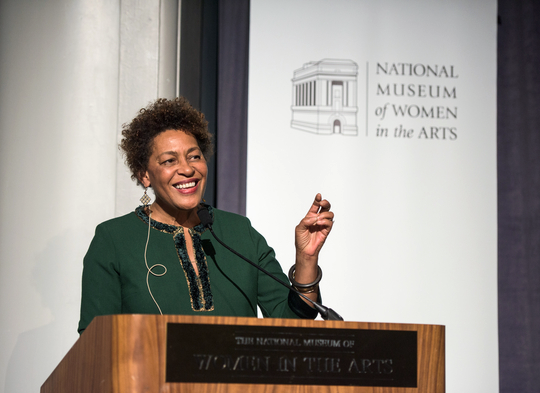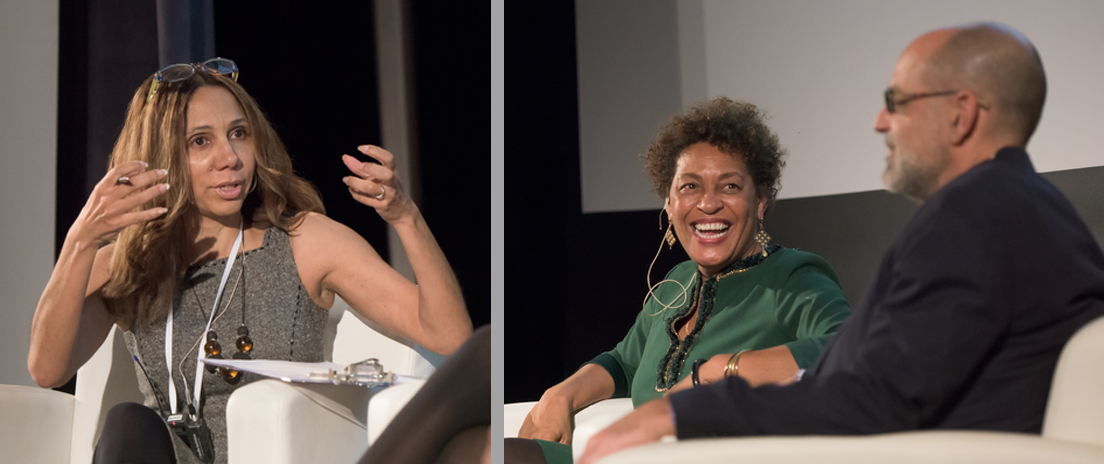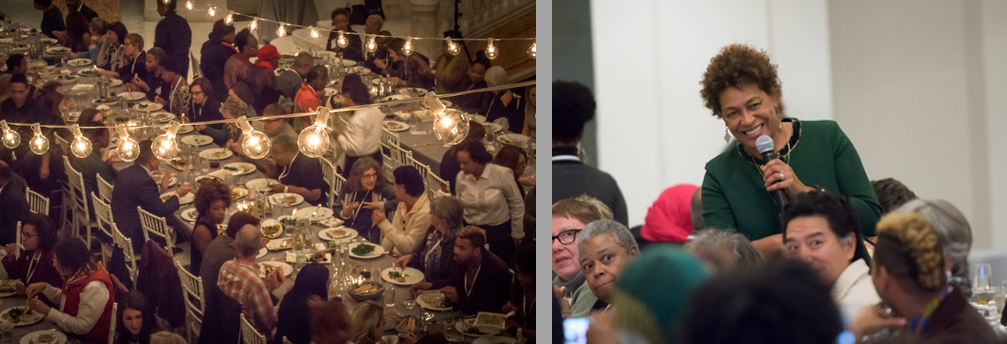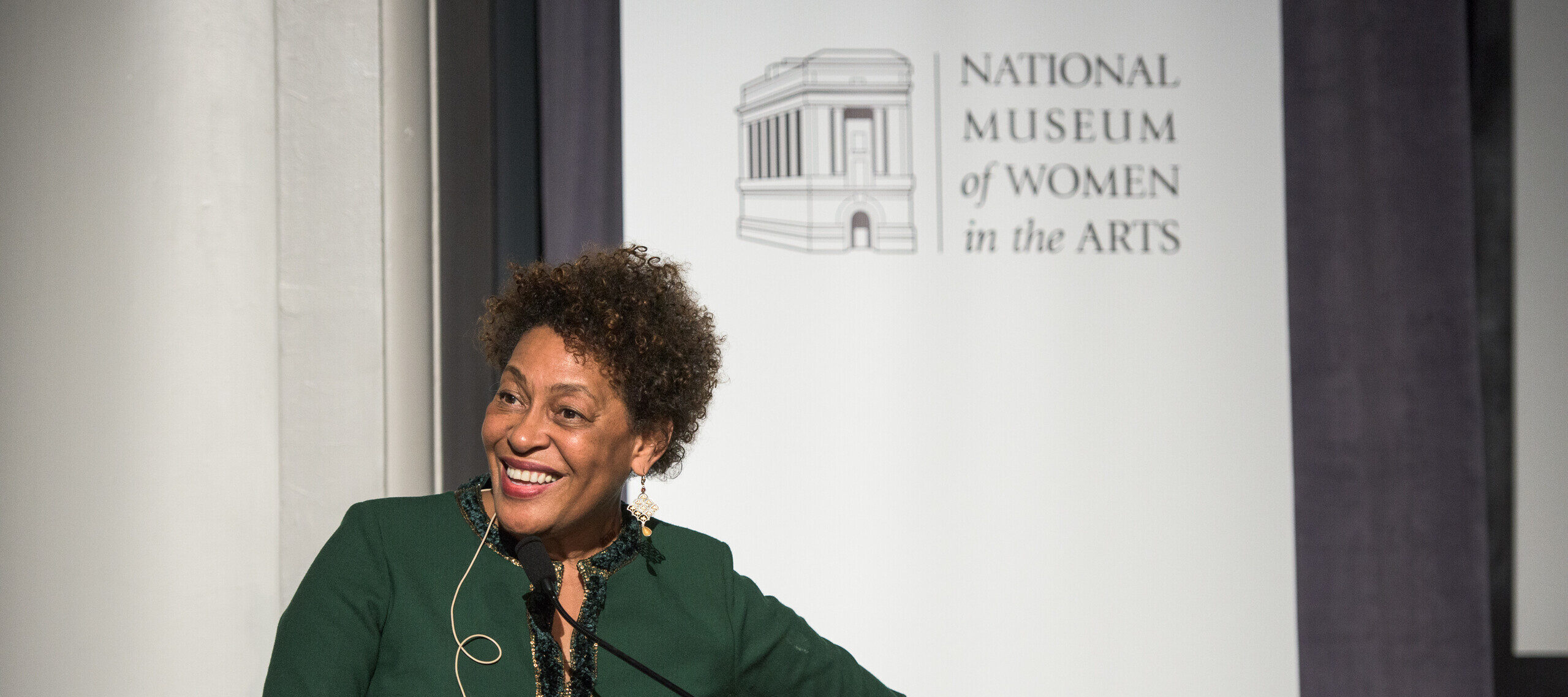In September, the National Museum of Women in the Arts launched a new public programs initiative, Women, Arts, and Social Change, focusing on women and the arts as catalysts for change. On Sunday, November 15, the museum hosted the second program in the series, FRESH TALK: Carrie Mae Weems—Can an artist inspire social change? The event’s audience provided thought-provoking commentary over Sunday Supper, through Twitter, and via comment cards. Here are a few highlights:
Carrie Mae Weems: Keynote on an artist’s responsibility
Weems gave a candid description of her artistic journey, saying that being an artist is “a very difficult thing to do, because you’re constantly living emotionally.”

Weems’s project Social Studies 101 directly addresses the issues faced by the marginalized community of her hometown of Syracuse, New York. Syracuse has the highest concentration of extreme poverty among African Americans and Hispanics in the country. As part of her project, Weems created and displayed public billboards and lawn signs with messages including, “Stop the Senseless Violence” and “Our failure to respond is the problem!” Weems inspired the audience to think about the impact they can have on their communities.
Can art inspire social change?
Carrie Mae Weems was joined onstage by Raben Group president and founder Robert Raben. Washington Post columnist Lonnae O’Neal moderated the conversation, posing questions about the roles and spaces for art in current social justice movements, concepts of intersectionality, and the relationship between arts and policy.

During the discussion, Raben mentioned that much of what is known about the Civil Rights era is limited to a handful of stories, which have been curated by mainstream audiences. The annual March on Washington Film Festival, produced by the Raben Group, uses film, music, and art to share other relevant stories surrounding the period’s events and heroes—while inspiring a renewed passion for activism. Raben challenged, “If you care about social justice, you must care about changing the narrative.” Tweets about representation, identity, and otherness flooded the #FreshTalk4Change dialogue:
- @VMPhoto3 quoted Weems [MT] How do you live a life without otherness. Mic drop.
- @KiaWeatherspoon “Our history is miss-told” @RobertRaben #FreshTalk4Change
- @eferry “Energized by Carrie Mae Weems on using art for social change #FreshTalk4Change #RBC”
Creating space for change:
Over Sunday Supper, attendees participated in lively discussions on social justice issues among a diverse crowd. On one comment card, a participant said their experience “changed my opinion of what a museum can be.”

Weems prompted the crowd to share their questions about how to integrate art with social change. Many artists in the audience mentioned that they hadn’t considered using art for social justice previously, but hoped to make it a key component in their future art-making practice.
The conversation initiated by Raben, O’Neal, and Weems empowered the audience to take ownership of their own stories as artists and social leaders. The conversation doesn’t stop here. Join the discussion and add your voice on Twitter with #FreshTalk4Change.
